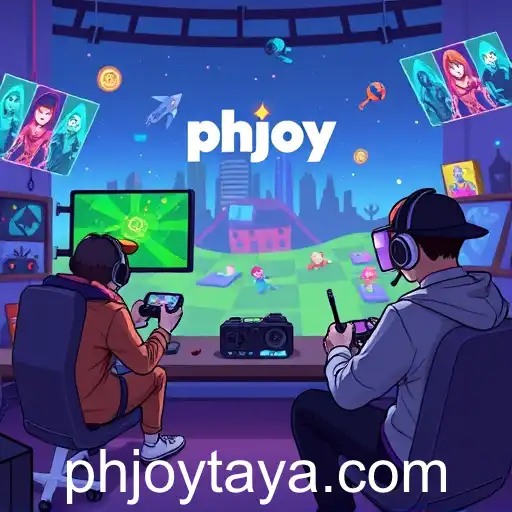
Explore the impact of innovations in the online gaming industry, focusing on technology, community dynamics, and market trends.
The world of online gaming continues to evolve at an unprecedented pace, as technology bridges the gap between virtual amusement and reality. ‘Phjoy’ has become a notable mention in the online gaming community, signaling a unique shift in the digital entertainment landscape.
In 2025, online gaming has expanded beyond the traditional screens, escalating to immersive experiences enhanced by virtual reality (VR) and augmented reality (AR). Gaming platforms and developers like those found on the ‘phjoy’ website are capitalizing on these advancements, aiming to offer players experiences that bring games to life. This development promises a new hyper-realism in gaming, allowing users to step into worlds previously only envisioned in science fiction.
Another timely topic is the growth of esports as a mainstream form of entertainment and competitive sport. Events are now filling arenas worldwide, with millions tuning in online. The phjoy platform is riding this wave, offering an extensive range of games that cater to both casual and competitive players. As the lines between gaming and traditional sports blur, advertisers and sponsors are pivoting their strategies to engage with a younger, tech-savvy audience.
Economic dynamics in the gaming industry also reflect a shift, with microtransactions and in-game purchases becoming a primary revenue model. This approach has sparked debates within the community about fairness and accessibility, given that some games have been criticized for allowing advantages to those who can pay more. These discussions are pivotal in understanding modern consumer behavior and the evolving landscape of digital rights and responsibilities.
Moreover, social aspects of gaming are more prominent. Platforms like phjoy facilitate communities that foster connections beyond gameplay. These digital social hubs are revolutionizing how we perceive interaction, transcending geographical barriers to build relationships based on shared interests and experiences.
In conclusion, the online gaming industry, highlighted through sites like phjoy, continues to redefine entertainment boundaries. With technological advancements, evolving business models, and broadening social interactions, the future of gaming promises to be as dynamic as it is unpredictable. Observing this space will offer fascinating insights into the impending future of digital play and interaction.




